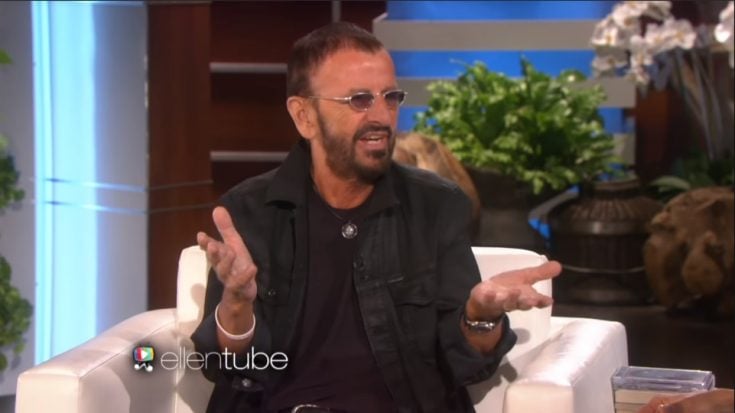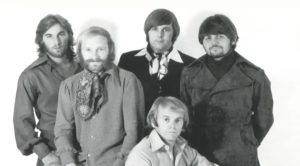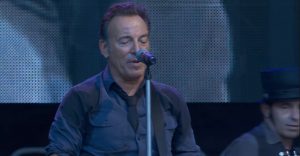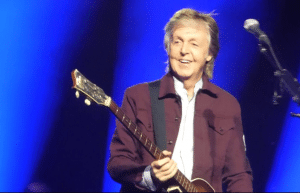The Story Of All Of Ringo-lead Beatles Songs

Ringo Starr on the Ellen Show - TheEllenShow / Youtube
Even though John Lennon, Paul McCartney, George Harrison, and Ringo Starr’s names have been synonymous with popular culture for almost 60 years, The Beatles weren’t always the Fab Four that we know and love today. Initially, the Beatles formed with Pete Best as the original drummer. However, after growing distant from his bandmates and was later fired by manager Brian Epstein, Ringo Starr, who had been recruited from rival Merseybeat band Rory Storm and the Hurricanes, took his place. The rest is history.
In the group, Ringo wasn’t much of a contributor in singing and songwriting, but he did have some songs in the Beatles catalog that are worthy of recognition. Here’s the history of each of the 11 Beatles songs that Ringo sang, provided below.
“Boys” – Please Please Me (1963)
The band’s 1963 first album, Please Please Me, which was hastily produced in a single day to take advantage of the group’s meteoric rise to fame, included Ringo Starr’s first lead vocal. A song by the well-known girl group The Shirelles is covered in the tune “Boys.”
“I Wanna Be Your Man” – With the Beatles (1963)
While writing and recording their sophomore U.K. “I Wanna Be Your Man” was written by John Lennon and Paul McCartney specifically for Ringo Starr to replace “Boys” on the album, With The Beatles. Fun fact, The Rolling Stones first got a shot at popularity by covering this song.
“Matchbox” – single (1964)
The following Beatles song that Ringo Starr sang lead vocals on was “Matchbox,” a copy of a 1957 hit by rock pioneer Carl Perkins, solidifying his reputation as a dependable interpreter of foot-stomping rockabilly tunes. Later, Ringo would play “Matchbox” on the same stage as Perkins, George Harrison, and Eric Clapton in 1985’s “Carl Perkins and Friends: A Rockabilly Session,” which was shown on British TV.
“Honey Don’t” – Beatles for Sale (1964)
Ringo was familiar with “Honey Don’t” from his musical career before joining The Beatles, much like he was with “Boys.” According to reports, Rory Storm and the Hurricanes also performed this song live, with Ringo contributing vocals as part of his own featured position during each performance. Ringo reportedly claimed that “every band in Liverpool” performed the song, and because the song was so well-known, recording it for the album was a simple and uncomplicated process.
“Act Naturally” – Help! (1965)
Ringo Starr’s demeanor and vocal delivery felt far more at home with upbeat, uplifting music. When it came to his once-per-album vocal feature, however, the drummer was frequently given rock ‘n’ roll covers to sing. By the time of the recording sessions for The Beatles’ 1965 hit album Help! however, Ringo was hoping to have more control over the songs to which he offered his voice. So, he went with “Act Naturally.”
“What Goes On” – Rubber Soul (1965)
However, despite the fact that the Fab Four’s mutually friendly appearance gave the impression that they were invincible in the middle of the 1960s, internal conflicts had already begun to surface. Surprisingly, these conflicts centered on Ringo. Ringo expressed his fears to the group as a consequence, and they reassured him by giving him credit for his first song on a Beatles record, “What Goes On,” a song by John Lennon that they revisited.
“Yellow Submarine” – Single (1967)
“Yellow Submarine,” one of the most iconic songs of the psychedelic 1960s, is maybe Ringo Starr’s most notable song in the history of the Beatles. Paul McCartney was principally responsible for writing the song, but he also received unacknowledged assistance from folk artist and band buddy Donovan, who is said to have contributed to the lyrics.
“With a Little Help From My Friends” – Sgt. Pepper’s Lonely Hearts Club Band (1967)
The Beatles’ darkest times are reflected in “With A Little Help From My Friends,” which is perhaps Ringo Starr’s hallmark song and reflects his position as a peacemaker and social glue. Even now, the song remains a highlight of Ringo’s performances with his All Starr Band.
“Don’t Pass Me By” – The Beatles (1968)
The Beatles Bible claims that Ringo penned the straightforward country-and-western song early in his band’s history; nevertheless, the song wouldn’t be released until 1968’s The Beatles (also known as The White Album) It’s tempting to think that John Lennon and Paul McCartney may have declined to record “Don’t Pass Me By” in order to save their own egos or because they thought the song wasn’t good enough, which allegedly often happened with George Harrison’s compositions.
“Good Night” – The Beatles (1968)
In many respects, “Good Night” sounds, unlike any other song The Beatles have ever recorded. It is the grand climax of The White Album, a soft and lovely lullaby that has been orchestrated in a way that makes it seem grandiose. John Lennon wrote the song for his son Julian, who was five years old at the time, as a bedtime song.
“Octopus’s Garden” – Abbey Road (1969)
The reality is that “Octopus’s Garden” was written during a time of enormous turmoil, despite the song’s happy and upbeat lyrics of freedom and contentment under the sea painting an idyllic image. Most versions of The Beatles’ dissolution center on John Lennon and Paul McCartney’s distinct private and public departures from the band. But in reality, Starr was the first Beatle to leave the group, storming out of the recording sessions for the White Album as his ire at an increasingly domineering McCartney, who had openly disparaged Ringo’s drumming, reached an all-time high.






















